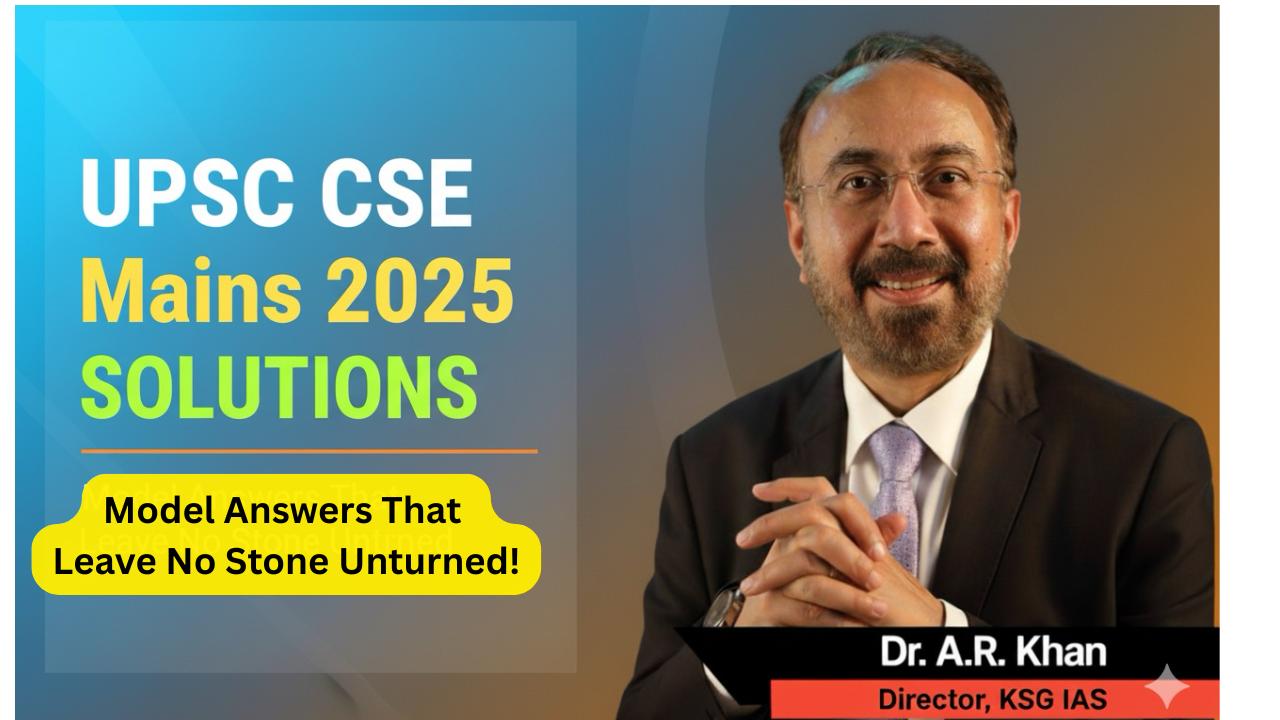5(a). "One who is devoted to one’s duty attains highest perfection in life." Analyse this statement with reference to sense of responsibility and personal fulfilment as a civil servant. (Answer in 150 words) 10
The statement weaves a beautiful bond between devotion to duty and perfection in life. Perfection is denoted not by any grades, but by happiness and sense of peace/ fulfilment in life. As told by Bhagavad Gita’s Karma Yoga: one attains self-fulfilment by performing duties with sincerity, without attachment to outcomes.
For civil servants, duty is both a moral and constitutional responsibility, dedicated execution of which can reward with major satisfactions in life.
- Sense of Responsibility: A civil servant is entrusted with public resources and authority. Dedication to duty ensures efficient service delivery. For example, IAS officer Durga Shakti Nagpal acted against illegal sand mining despite pressures, exemplifying duty-consciousness.
- Personal Fulfilment: Performing duty and being able to help out people in need brings inner satisfaction. Frontline health workers during COVID-19 derived moral strength from saving lives, despite personal risk.
- Public Trust: Devotion to duty builds citizens’ confidence in institutions, reinforcing democratic legitimacy (Art. 14, equality before law; Art. 21, dignity of life).
- Perfection in Life: Civil servants attain fulfilment not through personal gain but by contributing to nation-building. As Dr. Kalam noted, “Great dreams make great nations.”
- Devotion brings happiness: One who enjoys his work remains positive and happy, contributing in attainment of perfection of life.
- Recognition provides thrust for more work: When citizens appreciate the work of dedicated civil servants, it provides them with a lot of satisfaction and motivates to work further for the upliftment of the people.
Thus, devotion to one’s duty cultivates integrity, enhances social welfare, and provides deep personal fulfilment—creating a virtuous cycle of service and self-perfection.
5(b). To achieve holistic development goal, a civil servant acts as an enabler and active facilitator of growth rather than a regulator. What specific measures will you suggest to achieve this goal? (Answer in 150 words) 10
Civil servants must evolve from being controllers to enablers of holistic development, promoting innovation, inclusivity, and citizen empowerment.
Measures to achieve this:
- Ease of Doing Business: Streamlined single-window clearances (e.g., MCA21 reforms), reducing red tape.
- Participatory Governance: Empowering PRIs under 73rd/74th Amendments, ensuring local ownership in schemes like Jal Jeevan Mission and PMAY.
- Capacity Building: Training SHGs under DAY-NRLM to become entrepreneurs. The aim to develop a citizen force capable of ushering change themselves rather than depending on civil servants totally.
- Technology as Enabler: Platforms like GeM and DigiLocker enhance transparency and citizen service delivery, reducing the chances of creating bottlenecks at the level of civil servants in information delivery.
- Outcome-Oriented Monitoring: Use of dashboards in Aspirational District Programme encourages real-time accountability.
- Public–Private Partnerships (PPP): Leveraging PPP in big infrastructure programs like highways, renewable energy projects , and healthcare ensures resource efficiency.
- Enhancing Accountability: Awareness amongst citizens about their rights can nudge the civil servants to perform their duties in a more accountable manner.
- Swift Grievance Redressal: Initiatives like CPGRAMS, monitored by PMO, can reduce instances of red tape and non-performance of duty by civil servants.
By adopting these, civil servants embody the Directive Principles (Art. 38 & 39), ensuring social justice, equity, and growth. Thus, they transform from regulators to catalysts of inclusive, sustainable development.

